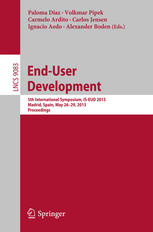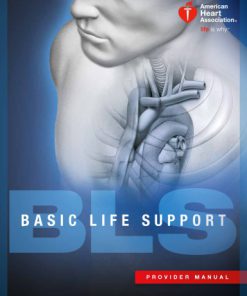The Many Moral Rationalisms Karen Jones & François Schroeter 0192517473 9780192517470
$50.00 Original price was: $50.00.$25.00Current price is: $25.00.
This completed downloadable of The Many Moral Rationalisms Karen Jones & François Schroeter

Instant downloaded The Many Moral Rationalisms Karen Jones & François Schroeter pdf docx epub after payment.
Product details:
- ISBN 10: 0192517473
- ISBN 13: 9780192517470
- Author: Karen Jones, François Schroeter
Moral rationalism takes human reason and human rationality to be the key elements in an explanation of the nature of morality, moral judgment, and moral knowledge. This volume explores the resources of this rich philosophical tradition. Thirteen original essays, framed by the editors’ introduction, critically examine the four core theses of moral rationalism: (i) the psychological thesis that reason is the source of moral judgment, (ii) the metaphysical thesis that moral requirements are constituted by the deliverances of practical reason, (iii) the epistemological thesis that moral requirements are knowable a priori, and (iv) the normative thesis that moral requirements entail valid reasons for action. The five essays in Part I (‘Normativity’) offer contemporary defences or reconstructions of Kant’s attempt to ground the normative thesis, that moral requirements entail valid reasons for action, in the nature of practical reason and practical rationality. The four essays in Part II (‘Epistemology & Meaning’) consider the viability of claims to a priori moral knowledge. The authors of all four essays are sympathetic to a realist moral metaphysics, and thus forgo the straightforward constructivist road to apriority. The four essays in Part III (‘Psychology’) each grapple with the implications for rationalism of the role of emotions and unconscious processes in moral judgement and action. Together the essays demonstrate that moral rationalism identifies not a single philosophical position but rather a family of philosophical positions, which resemble traditional rationalism, as exemplified by Kant, to varying degrees.
Table of contents:
Part I. Normativity
2. Humanity as an End in Itself
1. Internal Reasons and Moral Relativism
2. The Problem of Obligation
3. Imperatives and Ends
4. Kant’s Argument
5. Revising the Kantian argument
Acknowledgments
3. Three Kinds of Moral Rationalism
1. Background
2. Epistemology for Moral Rationalists
3. The Reasons-First View
4. The Desirability-First View
5. The Function-First View
6. Moral Epistemology for Moral Rationalists—Again
Acknowledgements
4. Constitutivism about Reasons: Autonomy and Understanding
1. Reflection and the Concept of a Reason
2. Rationality and Understanding
3. Theoretical and Practical Rationality
4. The Requirements of Understanding
5. Understanding, Rationality, and Reasons
6. Autonomy and Understanding
Acknowledgments
5. Constructivism and the Normativity of Practical Reason
1. The Problem of Normativity within Reason
2. Practical Reason and the Thing to Do
3. Vindicating the Normativity-of-Reason Thesis
4. Vindicating the Reasons-Independence Thesis
5. Conclusion
Acknowledgements
6. Moral Requirements and Permissions, and the Requirements and Permissions of Reason
1. Personal Ideals
2. The Basic Ideal of Treating Others with Concern and Respect
3. Nonaccommodationist Ideals
4. The Limits of Accommodation
5. Betraying the Basic Moral Ideal by Lending a Helping Hand
6. A Nonaccomodationist Moral Ideal
Acknowledgments
Part II. Epistemology and Meaning
7. Reasons and Justifiability
1. Ideal Accessibility
2. Anti-individualism_ From the Inside Out
3. Moderate Rationalism
4. Practical Reasons
5. Conclusion
Acknowledgments
8. Rationalist Metaphysics, Semantics, and Metasemantics
1. Moral Rationalism as a Family of Theories
2. Subjective Rationality First
3. Subjective vs. Objective?
4. The Conditional Fallacy, Examples vs. Advice: Rationality as Comparative
5. Properties and Relations
6. Externalist Metasemantics, and Moderate Judgement Internalism
7. Externalist Qualms about the Argument
8. Defending Translation Arguments
Acknowledgements
9. Naturalistic Moral Realism, Rationalism, and Non-Fundamental Epistemology
1. Introduction
2. Non-fundamental Epistemology
3. Understanding the Rationalist Challenge
4. Generalizing the Epistemological Challenge
5. Joint-carving Moral Realism
6. Naturalism and the Epistemology of Elite Properties
7. Conclusions
Acknowledgments
10. The Motivating Power of the A Priori Obvious
1. The Motivating Power of the Obvious Does not Depend upon My Desires
2. The Motivating Power of the Obvious Does not Depend upon Appearances
3. The Motivating Power of the Obvious Depends upon My Ability to Reason
Acknowledgments
Part III. Psychology
People also search:
too many morals
rational morality meaning
the moral majority
the moral man
a rational man
You may also like…
Business & Economics - Management & Leadership
Let’s Talk Business: Stuff Your Boss Wishes You Knew 1 (2019-08-26) Edition Don Jones
Business & Economics - Management & Leadership
Let’s Talk Business: Stuff Your Boss Wishes You Knew 1 (2019-08-26) Edition Don Jones
Housekeeping & Leisure - Gardening
The Healing Power of Plants The Hero House Plants that Love You Back Fran Bailey
Computers - Programming
Medicine - Cardiology
Politics & Philosophy - Anthropology
Health Care Ethics through the Lens of Moral Distress Kristen Jones-Bonofiglio
Politics & Philosophy - Government & Politics












